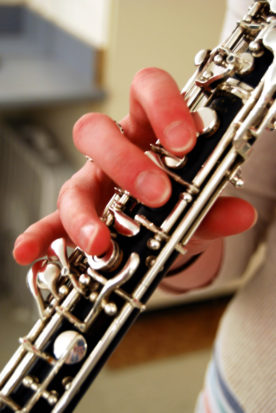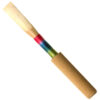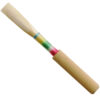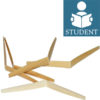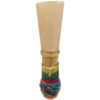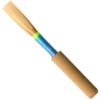
As a student, I liked to have music playing when I got down to serious studying. Headphones, speakers whatever – as long as it was music I knew and enjoyed.
Have you been told how bad this is supposed to be for you? “How can you concentrate with that racket?” was my parents’ complaint. I felt bad going against their wishes, but I knew deep inside that music helped my academic performance. I could feel it even though I couldn’t explain it.
As an adult who runs a business, I still depend on music, especially when I’m in serious concentration mode like writing copy for our catalog, doing photos for the website, or prepping for meetings.
Of course, some people are much better off studying in silence and some situations are just not good for listening while studying. A USA Today story last September reported that listening to music with lyrics is an especially bad idea when studying languages because the words of the song conflict with the part of your brain trying to understand words in another language.
Another research study run by British psychologist Dr. Emma Gray found that it’s important to choose the right music for the topic you’re studying.
Math and classical music are an example. Dr. Gray’s research found that students who listened to classical music (with 60-70 beats per minute) while studying math, scored on average 12 percent higher than without. “The melody and tone range in classical music, such as Beethoven’s ‘Fur Elise’, helped students to study longer and retain more information,’ she said. “Music in this range induces a state of relaxation in which the mind is calm but alert, the imagination is stimulated and concentration is heightened. This is thought to be best for learning.”
For those studying science, humanities and languages, Dr. Gray found that Miley Cyrus and Justin Timberlake are worth downloading. “The left side of the brain is used to process factual information and solve problems, which are key skills in these topics,” said Dr Gray. “Listening to music with 50-80 beats per minute such as ‘We Can’t Stop’ by Miley Cyrus and ‘Mirrors’ by Justin Timberlake have a calming effect on the mind that is conducive to logical thought, allowing the brain to learn and remember new facts.”
The right side of the brain is used to process original, creative thoughts, so Gray suggests English, Drama and Art students listen to emotive rock and pop music. “Songs like Katy Perry’s ‘Firework’ and ‘I Can’t Get No (Satisfaction)’ by The Rolling Stones produce a heightened state of excitement that is likely to enhance creative performance,” she said.
Of the beauties in scientific research, that we attempt to understand the world around us through trial and error – repeated attempts at achieving clarity, without presupposing what the results should be, is my favorite. That’s exactly how I came to understand that listening to music while studying works for me.
What works for you?


